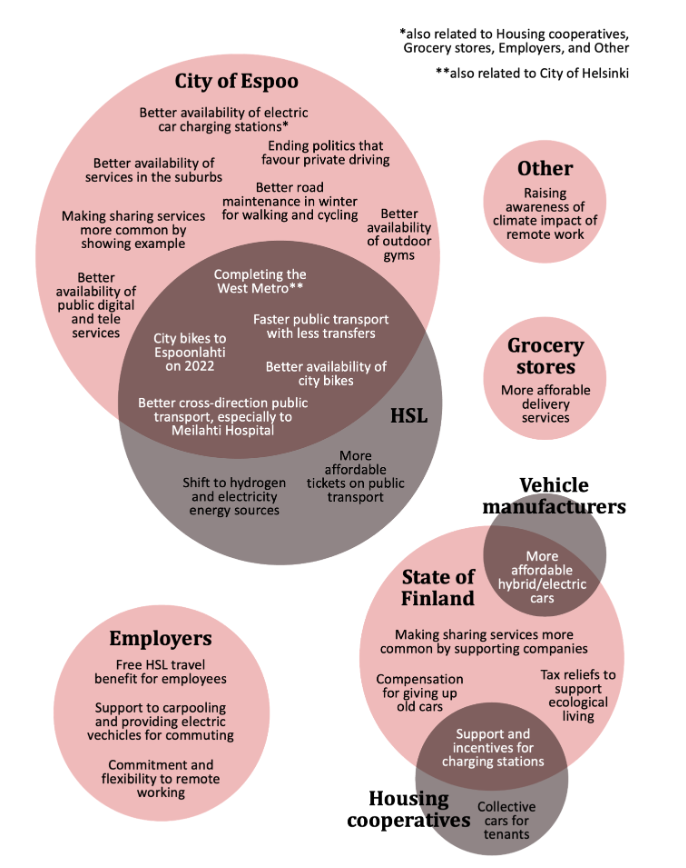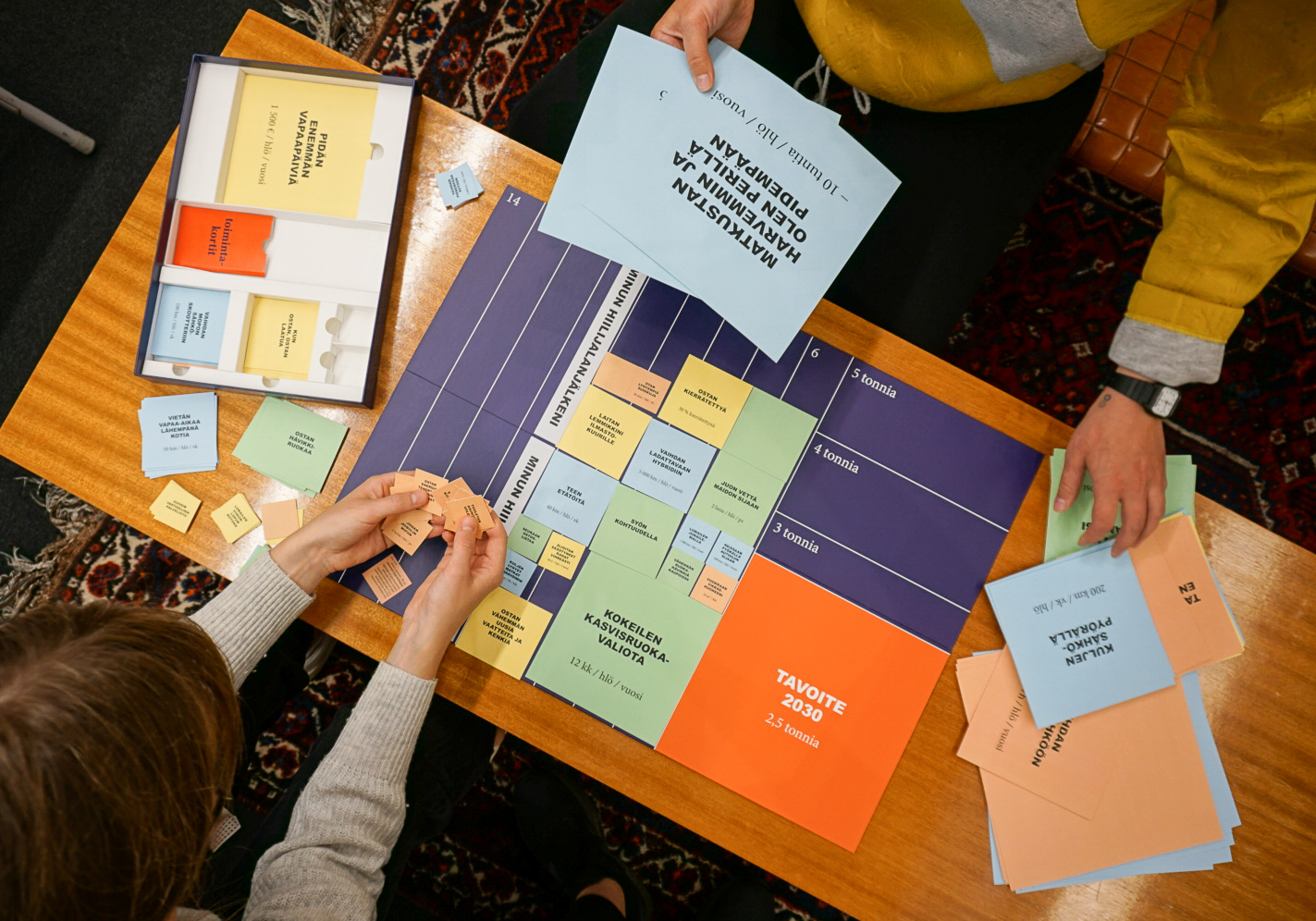Game changing lifestyle shift with citizens
KONE is a corporate partner in SPARCS with an aim to understand and boost sustainable mobility behaviour through citizen engagement. During 2021, KONE collaborated with D-mat Ltd. to assess the carbon footprint of different mobility concepts and engaged households through 1.5-Degree workshops to plan sustainable lifestyle choices in the Espoo lighthouse city.
When designing sustainable mobility solutions, it is central to understand how global climate targets will impact the everyday mobility choices of citizens and inevitably transform the flow of urban life. According to the 1.5-Degree Lifestyles report (2021), nutrition, housing, and mobility have the largest impact on climate change, accounting for approximately 75% of lifestyle carbon footprints. To explore citizens’ pathways to low-carbon lifestyles in the future, KONE and D-mat organized 1.5-Degree Lifestyle Workshops as part of the SPARCS project in November 2021.
“Globally, citizens and society need to aim for per-person consumption-based greenhouse gas emissions targets of 2.5 tons of CO2e in 2030, 1.4 tons by 2040, and 0.7 tons by 2050.” ( 1.5-Degree Lifestyles report 2021)
1.5-Degree Lifestyle Workshops to plan the pathway to low-carbon lifestyle
In the workshops, citizens from 26 households of Espoo got to play the Climate Puzzle by D-mat Ltd. to familiarize with over 100 diverse climate actions and plan concrete actions to reduce their carbon footprint by 2030. One of the greatest benefits of Climate Puzzle is that it makes climate data and CO2e calculations visible, understandable and actionable.
”The workshop provided insightful new information on climate impact of all kinds of actions and how the same actions impact on a different scale.” (1.5-Degree Workshop participant)
Through the game, the participants planned concrete actions to reduce their carbon footprint in four areas of life: housing, mobility, food and consumption patterns. After the game, D-mat conducted carbon footprint calculations for each household based on the choices. In the workshops, the participants also got to make wishes on what public and private sector organizations could do to help citizens in making game changing lifestyle shifts on a broader scale. Their wishes to support mobility actions were targeted to the municipality, the local public transportation operator (HSL), employers, businesses, housing cooperatives and to the state. In the SPARCS Espoo lighthouse, some of these challenges will be tackled in the demonstration areas of Leppävaara and Espoonlahti as well as serve as a guiding principle when designing new areas, such as the demo area of Kera.

From 6 tons to 2.5 tons
The current average carbon footprint of the participating households was approximately 6 tons of CO2e on a yearly basis. All the households chose actions that will help to reduce their individual footprint to 2.5 tons by 2030. When giving suggestions for public and private sector, strong focus was on better accessibility of and support for low-carbon mobility options. The results of mobility concept footprint calculations and 1.5-Degree Lifestyles Workshops indicate the high relevance of mobility-related solutions for facilitating 1.5-degree lifestyles. The 1.5-Degree Lifestyle project activities will continue with a follow up study to the participating households conducted during spring 2022 to find out if – and how – the participants have turned their plans into action. Detailed research results will be made available in SPARCS deliverable D3.6 which summarizes results from all the citizen engagement activities in the Espoo lighthouse city.

